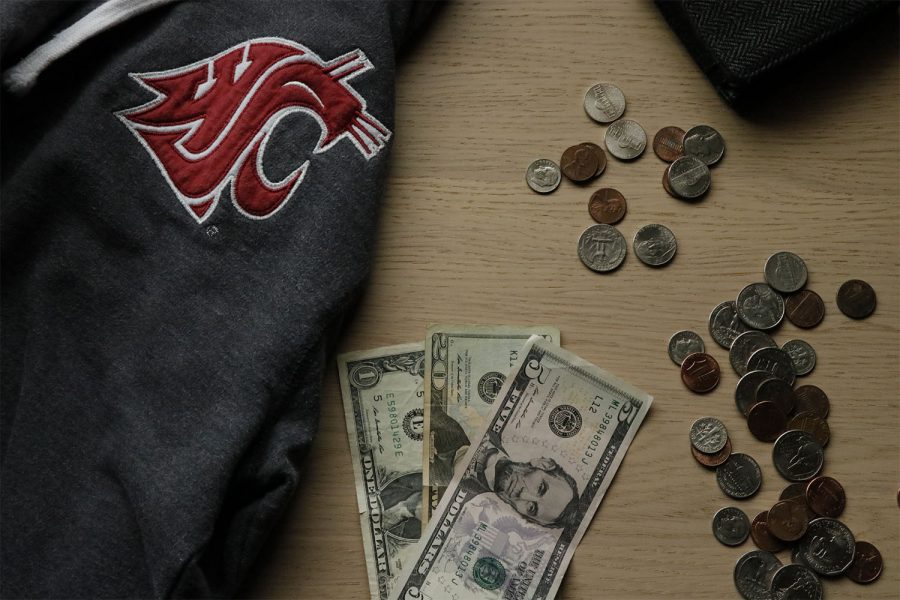College Athletes Deserving Pay Still Controversial Issue
DEBATE OF THE CENTURY THAT COULD AFFECT CURRENT AND FUTURE ATHLETES The argument needs to be settled. Should the NCAA listen to the fans or the coaches?
October 2, 2019
Should student athletes in college receive an income for their hard work and dedication towards their beloved sport? This question has been asked frequently within the realm of the college sports world but has yet to be resolved. The National College Athlete Association expresses the challenges and pressures this would put the students through academically and athletically. Others reason that athletes should get paid for the effort they are putting into an extracurricular activity at that school, which is taking away from valuable time that could be used for things such as studying and gaining valuable knowledge academically.
This issue has been debated more recently due to the amount of revenue schools are attracting because of platforms such as television exposure, ticket sales to games and/or matches, and the surplus of team apparel being sold in forms of jerseys, jewelry, and other trademark props that represent the university. For example, in the 2018 college football season, Washington State University’s quarterback Gardner Minshew was trademarked for his mustache. He led the Cougars to one of the most successful football seasons they have had in the Mike Leach era with a whopping 11 wins. Fans across the university could be seen wearing fake stick-on mustaches representing and supporting their quarterback. The amount of influence this man made on college football fans at the university was massive and it was all because of his personality, skill, and famous mustache. Minshew now carries his legacy onto the NFL, playing for the Jacksonville Jaguars, and slowly having an influence on more and more people. This is just one of many cases across the country in which sports draw so much positive attention to a university. College athletes have the work ethic and determination of working men and they should be making similar benefits.
Sophomore Chase Nagel, said, “I believe college athletes deserve pay because they are playing for entertainment in front of fans who paying good money to watch and support their favorite athletes and team.” He also said, “I do think it will give the players extra motivation, and they’ll have the sense of a chip on their shoulder to want to go out and perform well to prove something to coaches and fans.” However, freshman Emma Erhardt expressed the other viewpoint, stating, “College athletes do not deserve to get paid because if an athlete is really dedicated and puts the time and effort into athletics to continue to succeed at this high level of competition, then they should be able to make it to professional sports where money is made and earned accordingly.” There are many debates on the different abilities’ college and professional have, as well as the training and experience that college athletes simply do not have as great of access to as pro athletes do. The differences can be things such as physical ability, experience, maturity and confidence. This results in the separation of pay between the two types of athletes.
There are many different college sports that attract a lot of revenue to their universities. For example, according to SB Nation, the 2018-2019 college basketball tournament generated over $70 million in gross receipts. In this tournament, the final four teams received direct payments of over 1.3 million dollars. In addition to this, teams that were invited to the tournament received $275,000 for just getting invited, let alone advancing. This money is typically sent to the athletic director and usually spent on things such as uniforms, arena upgrades and practice facilities. But when do the players ever come into consideration? After all, they are the key to the team’s prosperity. They are the ones who help advance these programs, with some instruction given to them by experienced coaches. In addition to all the money being spread through college sports via tournaments, programs are benefiting from indirect substantial income. That these profits, however, are not shared with the ones who generate this money appears unfair to some.
There were mixed emotions on how this system would be managed throughout the NCAA. Several people agreed on the fact that any violation of the NCAA law book with an economic college environment should result in an automatic fine to the athletic department and or suspensions so those coaches or players violating the conduct of these rules. Junior Jack Richards said, “Money distributed to players would be unsafe and unhealthy for the players.” Senior Tyler Reents shares a similar point of view, stating, “Athletes wouldn’t be able to handle the hype and expectation of payment.” This would be more directed towards people higher up in the ranks of these organizations, however, because they’re the ones who control the athletes playing time, pay and experience. The major problem here would be how that would be addressed and assigned properly and how anyone who does not comprehend the rules correctly would be punished. There will be many more disputes on the topic in the future, and whether the NCAA will ever even consider making this drastic change, the result will affect many lives across America.






